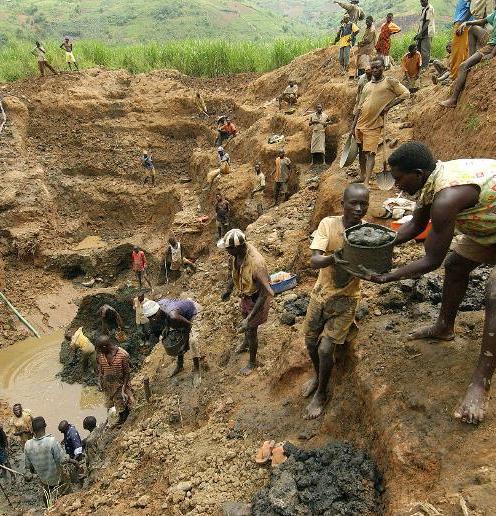European battle brewing over ‘blood metals’ from Africa
Europe will consider this week whether to follow the United States by bringing in tighter controls on “conflict minerals” from war zones, but critics say the measures risk being watered down. Armed groups in areas such as the Democratic Republic of Congo often fund their activities through the sale of precious metals and those used in electronic goods such as laptops and mobile phones. The European Parliament will vote on a resolution this week that would force the EU’s smelters and refiners to use responsibly sourced minerals, while encouraging other businesses to self-certify their supply chains. The aim is to ensure profits from the key “blood metals” - tungsten, tin, tantalum and gold - do not go to warlords.
This is now or never for us. It will be decisive. We want to have a mandatory system for all of the supply chain.
Maria Arena, conflict minerals spokeswoman for the Socialists and Democrats alliance
It is inspired by the Dodd-Frank Act, a 2010 US financial reform law under which US companies must inform regulators if they use metals from DR Congo or neighbouring countries. But the conflict minerals have themselves sparked a battle in Strasbourg, the French city that is home to the European Parliament. Leftist MPs and rights groups want the regulation to be compulsory across the board, not just for the 20 smelters and refineries in the bloc that would be affected, and are trying to pass amendments to the resolution. Leading the charge for compulsory regulation is Denis Mukwege, a surgeon in the Democratic Republic of Congo who last year won Europe’s top rights prize for his work treating victims of mass rape.

Europe Conflict